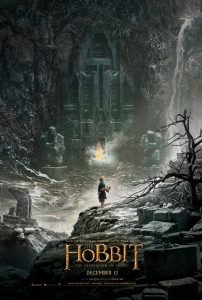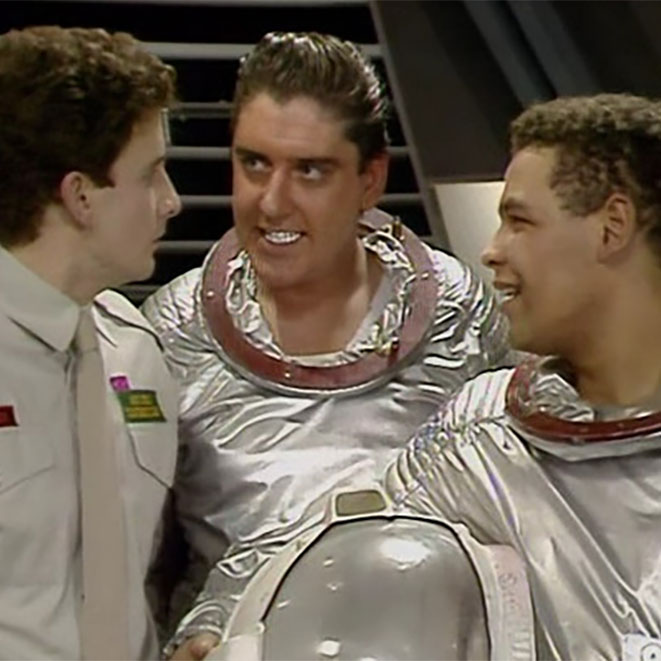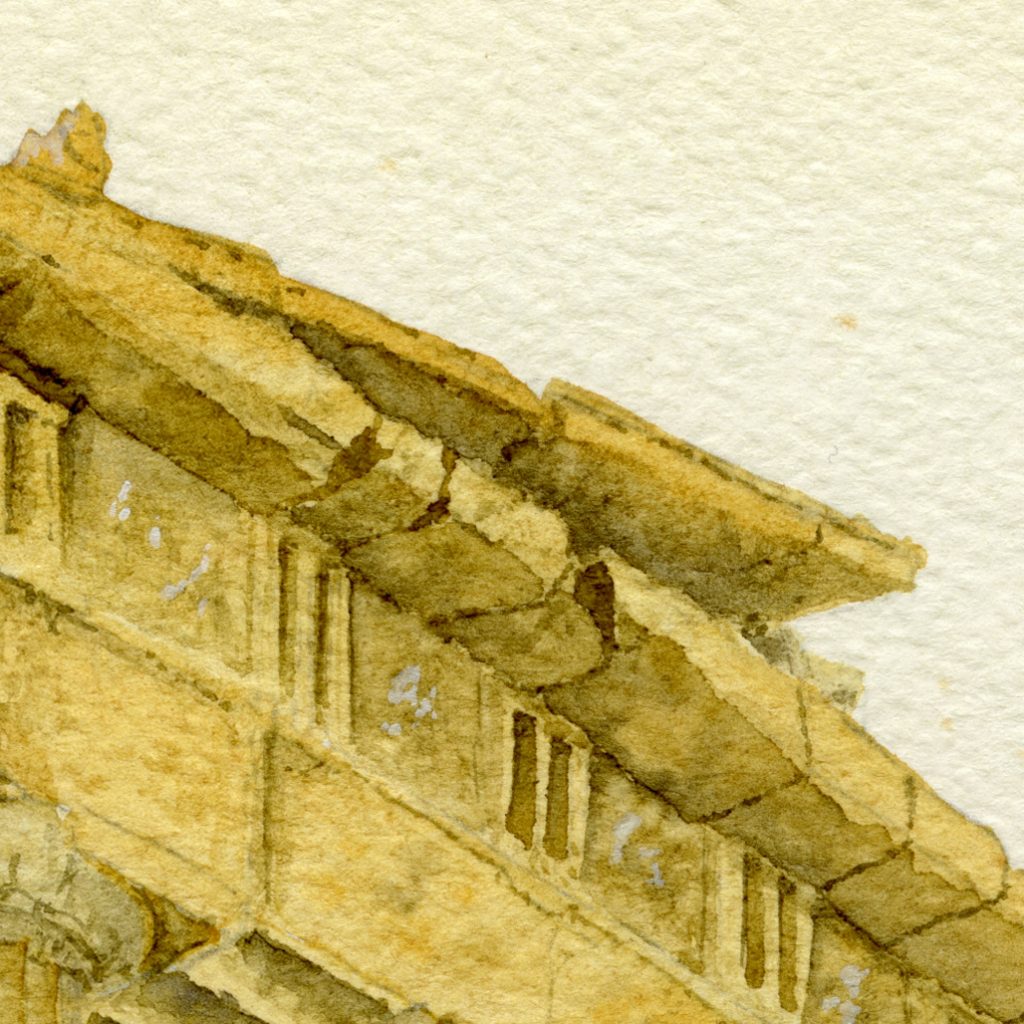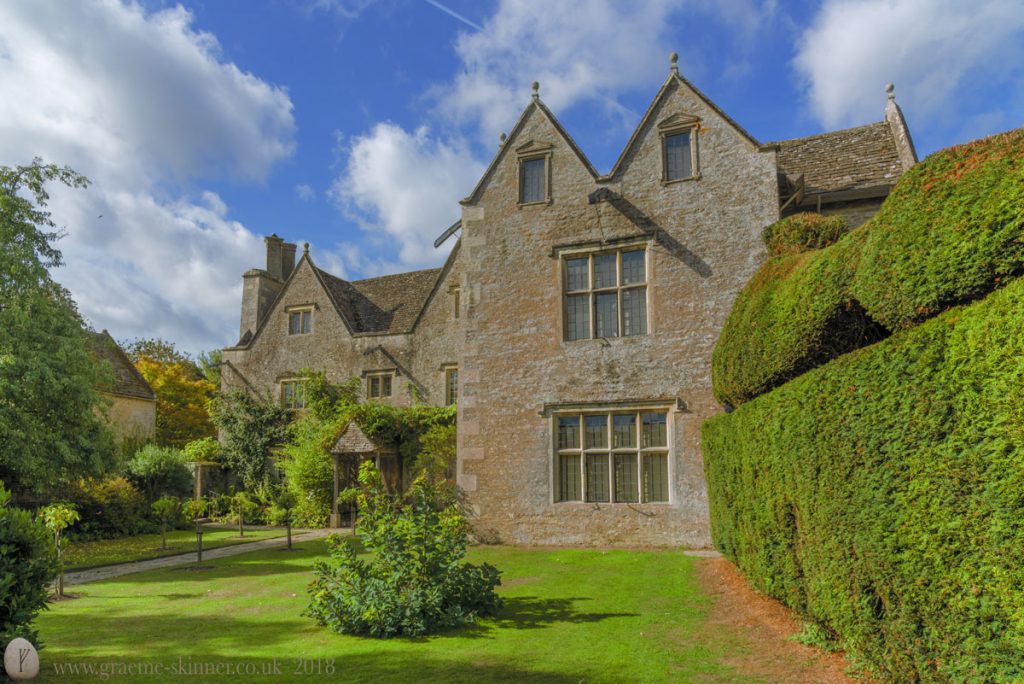Critic (n.) 1580s “one who passes judgement,” from Middle French critique (14c.), from the Latin criticus “a judge,” from Greek kritikos “able to make judgements”
Able to make judgements, how many of us are really able to make judgements that are fair and unbiased? We often have preconceived ideas as to how something should look, sound, taste, act…. but is it fair to compare that preconceived idea with what we actually see at the cinema, or when we first listen to a CD? It’s something I’m curious about, my curiosity in this case stems from the response some people have had to The Hobbit: Desolation of Smaug. But first we need to go back, back twenty odd years in fact.
We pick up the hire car early in the morning as there’s a few hundred miles to drive before the curtain goes up at 1900hrs; the miles pass quickly until we hit traffic near Birmingham, neither of us know the area well enough to risk a detour, neither of us know if we’d get there in time. An hour passes and we move a mile, maybe a little more, we glance at the clock, it’s moving far too quickly now compared to how far we are moving on the road. Finally the traffic clears and I hit the throttle (it goes without saying I stick within the posted speed limit for the roads in question). Arriving in Farnham we spot a sign pointing towards the theatre, there’s time to spare yet alas there is no parking space. I drive around town, there are cars everywhere and no spaces for us to park in, time is again against us so we dump the car in the leisure centre car park (near the sign that says ‘parking for customers only’, and what will happen to those that parked there who were not customers). By the time we arrive at the theatre it’s 1850hrs, just enough time to buy a T-Shirt and programme then find our seats. The lights fade up gradually and we hear “in a hole in the ground there lived a Hobbit…”
Actually the opening line could have been something else completely different. My memories of the Hobbit stage play are fairly blurred, it was based on a book I knew very well, yet there were a great deal of changes. Yes I noticed the changes, every one of them, but then I had read the book along with books about the book far too many times not to notice the changes. Did these changes or me noticing the changes spoil my enjoyment of the play? No, not at all, whilst I may have enjoyed a word for word literal reproduction of Tolkien’s book, I knew that wouldn’t appeal to all; things that work in your head while you read a book wouldn’t translate to a stage, especially in the time frame available for the play.
I remember there were elements of the stage play which I think didn’t work very well, at least to my eyes anyway. These were probably minor things that the majority of people probably wouldn’t notice or care about. How did I react to the elements which I didn’t enjoy? Well I didn’t write about these issues at length, I didn’t complain and moan about them repeatedly. I didn’t seek out the director and give them a breakdown of the play then suggest how in my expert opinion, as someone who had read the book more than once, how they could improve the play. I simply took pleasure in the elements which I’d enjoyed and pretty much forgot about the rest. When I’d booked the tickets I knew there would be changes made, but I also booked and went for the pure enjoyment in seeing Middle Earth brought to life in another medium.
Fast forward a couple of decades, and much has changed. I no longer have hair reaching half way down my back, I’m no longer thinking of growing my beard to Gandalf proportions, and now of course everyone is online posting their views on books, movies, music, cars, you name it really someone will be commenting on it. Another thing has changed, many folk it would seem only want to say what they didn’t like about something, they refrain from mentioning anything good and it would appear at times that some folk take delight in seeing on what is wrong and finding fault. Pondering about critics isn’t something new of course, in 1936 J. R. R. Tolkien gave the Sir Isreal Gollancz Memorial Lecture – Beowulf: The Monsters and the Critics to the British Academy [pp.13 Monsters and the Critics] where he said “One even dares to wonder if something has not gone wrong with ‘our modern judgement'”.
So, has something in our modern day ‘modern judgement’ gone wrong. Do people really take some strange delight in not only finding fault but then trying to make everyone else see things through their eyes. It would be a sad sign of the times if this were the case, it would be even worse if people were really taking some sort of pleasure from spoiling the enjoyment of books, movies, music etc. for others by pouring unwarranted scorn and criticism on something.
 You may quite rightly be wondering where all this is going now, it’s okay, I wonder that myself at times. Anyway, the second instalment of The Hobbit movie was recently released; The Hobbit: Desolation of Smaug based on the works of J. R. R. Tolkien and made by pretty much the same team that produced the Lord of the Rings movies made $757,000,000 around the World in just over a month (which means it’s been watched legally by around 93,000,000 people around the World since its release). You can imagine from such a large group of people that a percentage will have enjoyed the movie, a percentage will have been indifferent to it, and of course a percentage won’t like it at all. I can accept this, it’s logical, we don’t all like and dislike the same things, even amongst a group of close friends there will be differing opinions on things, and lets face it, it would be a boring World if we were all the same.
You may quite rightly be wondering where all this is going now, it’s okay, I wonder that myself at times. Anyway, the second instalment of The Hobbit movie was recently released; The Hobbit: Desolation of Smaug based on the works of J. R. R. Tolkien and made by pretty much the same team that produced the Lord of the Rings movies made $757,000,000 around the World in just over a month (which means it’s been watched legally by around 93,000,000 people around the World since its release). You can imagine from such a large group of people that a percentage will have enjoyed the movie, a percentage will have been indifferent to it, and of course a percentage won’t like it at all. I can accept this, it’s logical, we don’t all like and dislike the same things, even amongst a group of close friends there will be differing opinions on things, and lets face it, it would be a boring World if we were all the same.
What I find difficult to fathom though is the blinkered criticism some folk feel they need to express. When I dislike something I don’t say “this is wrong because of ‘xyz’, and you should dislike it for the same reason,” yet this appears to be how some think these days. The other style of criticism we see quite a lot of online is the extensive dissection of a movie (this doesn’t just apply to the Hobbit of course). This extensive dissection of a movie starts with the opening title and ends when the cinema house lights come on – and I’m fairly sure there will be some who have found fault with the brightness of the house lights after a screening.
Why then do I dislike the criticism through dissection? Well, there’s a number of reasons; there’s the elitism and superiority complex some exhibit; the condescension; and again the blinkered attitude that they are never wrong. That may all sound a bit harsh, but then take the last point ‘never wrong’, I’m the first to admit that I get things wrong, I’m often wrong – but then I’m human and make mistakes both in action and judgement. When you post criticism about something online though and won’t entertain the fact that you may be simply wrong about something or that others may have a different view than you then those blinkers are well and truly attached and you perhaps need to try and see the World through others eyes for a while. Preferably through someone’s eyes that don’t have blinkers on them 😉 What of the other points then, well I’ll start with elitism and superiority complexes and hopefully encompass condescension along the way.
Maybe a little pause would be good whilst I admit to something, you probably already knew that I a bit off a nerd; my collection of books by J. R. R. Tolkien, about J. R. R. Tolkien and his work is a little on the embarrassing side now. I don’t say this to brag or boast, there are far larger and much more impressive Tolkien collections in the World than mine. I have read all the titles in my collection though, they’re not just there for show or to look good on a shelf. I don’t see the need in counting the number of times I’ve read a particular book, but I can say I am quite familiar with the works and words of J. R. R. Tolkien. If someone were to ask me which I preferred, book or movie, then I’d opt for book. That’s not because I find anything wrong with the movie versions, in fact they are among the few films I can see time and again without getting bored. I could sit down and without looking in the books write a comprehensive list of differences and changes from book to screen. But what would that achieve realistically? Do I feel the need to ‘show off’ my nerd status in order to impress others or get them to accept my viewpoint, of course not. So why do others feel the need to do this when they’re being critical of a movie based on a book?
The view held by some that you can only enjoy Middle Earth in written form, or you can only appreciate it if you read the books before seeing the movies is absolute tosh in my opinion. We all enjoy things differently and it frustrates me that people feel the need to look down their noses at others because they watched the movies before reading the book, or shock horror that they prefer the movie and didn’t enjoy the books at all. One particular comment I noticed in regards Lord of the Rings and Hobbit movies read “…truly the world is a darker place in all respects since the movies pushed up a vision on all the ‘open’ minds. It is the destruction of the creative brain of new readers. It has not opened up anything and only destroyed artists interpretations…”. How do you quantify that, how does anyone really know what effect the movies will have on new readers. It’s an easy thing to claim but without any real evidence to back it up the viewpoint can readily be ignored. As to destroying artists interpretation I can only imagine the person making this comment has little knowledge of art and illustration. When I sit down to sketch/paint a scene from Middle Earth I don’t try to create a freeze frame from one of the movies, nor is this the case for anyone else who seriously wants to depict scenes from Middle Earth. If anything I’ve noticed people using the movies as a springboard to create their own visions of Middle Earth, some may start by trying to copy what they have seen, but the majority end up with their own interpretation of a scene.
Another aspect of the elitism/condescension that some exhibit is the “I know the books by heart and therefore know how the movie should have been made” attitude. This armchair expert dissects the movie and goes on to say what is wrong with every line and every scene of the movie, they of course could explain how they would have made the movie so it was exactly as the book was written. Somehow they believe that their vision of Middle Earth is the correct and only one that everyone should share . In some ways it would be interesting to see one of these ‘experts’ get a team together such as they did in New Zealand, organize the financial backing, sort out the movie rights etc. and then see how well they could actually make The Hobbit for screen and of course see what the public response was to their version. Perhaps in place of their extended criticism and negativity people could put their energy into creating something of their own, then put their creation out into the World and see what it is like to receive criticism themselves (I’ve worked in photography and design, I know what it is like to spend every waking moment on a project only for it to be pulled apart ;-)).
To sit and dissect the movies by comparing them to the written word is surely missing the point. There is after all a good reason why movies are listed as entertainment, they are there to entertain people, not just one person but hopefully the majority of people who see them. If you go to a movie with the intention of tearing it apart or with a preconceived idea of what should be on the screen then perhaps you should think about why you are really going to the cinema at all.
I am not of course saying that people should not have opinions, or that people should never say anything negative about a movie, but when you sit and pull apart an entire movie for not other reason but to show you know the story better than someone else then it’s not only wrong but it’s quite sad really. I do suspect that many who are critical of the movie are only posting comments to generate traffic for their websites, and maybe there are some who hold some sort of grudge against those who made the film as they were not hired as an ‘expert advisor’ 😉 I’m sure that many who are so critical of the movies would jump at the chance of meeting someone involved in the movies especially if they could blog or boast about the encounter online. Maybe it would be good to put one of the online critics in a room with some of the people involved in the movies and see if they are as critical in person as they are online.
I see a number of comments that J. R. R. Tolkien would not like ‘x’ scene, however they should maybe consider the words of a letter he wrote to Rayner Unwin in June 1957[The Letters of J. R. R. Tolkien #198] which was in response to an American film-maker – “As far as I am concerned personally, I should welcome the idea of an animated motion picture, with all the risk of vulgarization,” okay he was talking about an animated version, but he was also open to the idea of a movie, even with the risk of vulgarization, and he said this not only because of the “coin” as he put it but because he would find it “less painful than the sillification achieved by the B.B.C.” (the first adaptation of Lord of the Rings was aired by the B.B.C. between 1955 and 1956). So from this I would say that he was against sillification of his books, which I am sure we can all appreciate, but then the movies by P.J. & Co are far from being silly. You only have to look at the detail that went into every scene to know that those behind the movies took their involvement in Middle Earth very seriously indeed.
To paraphrase Tolkien –
the movie is one of those things: if you like it you do; if you don’t then you boo!
But if you do boo try to justify them properly and try to add a little balance by looking at the positives and things you do like, and maybe try to smile, just once in a while 😉



